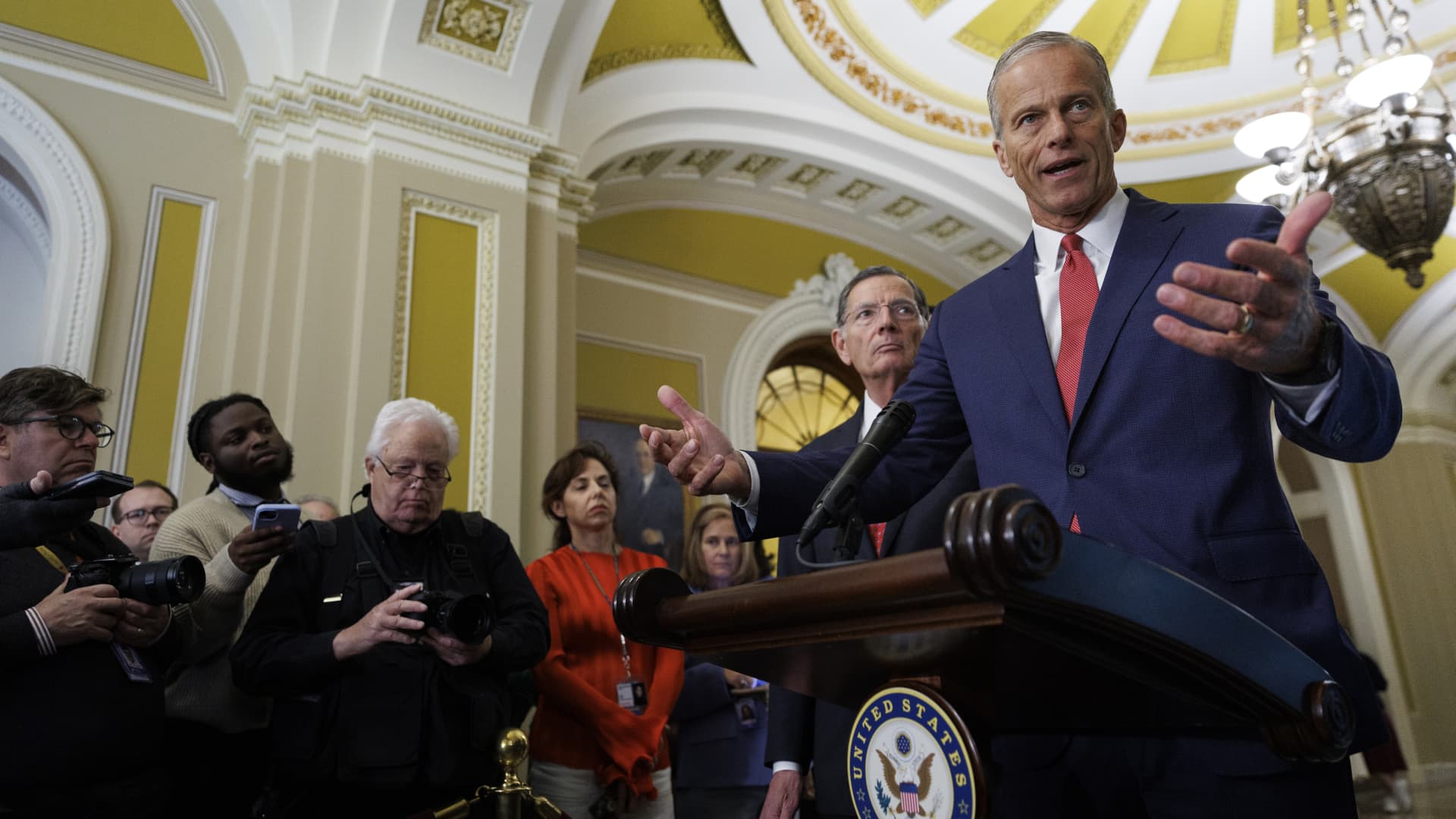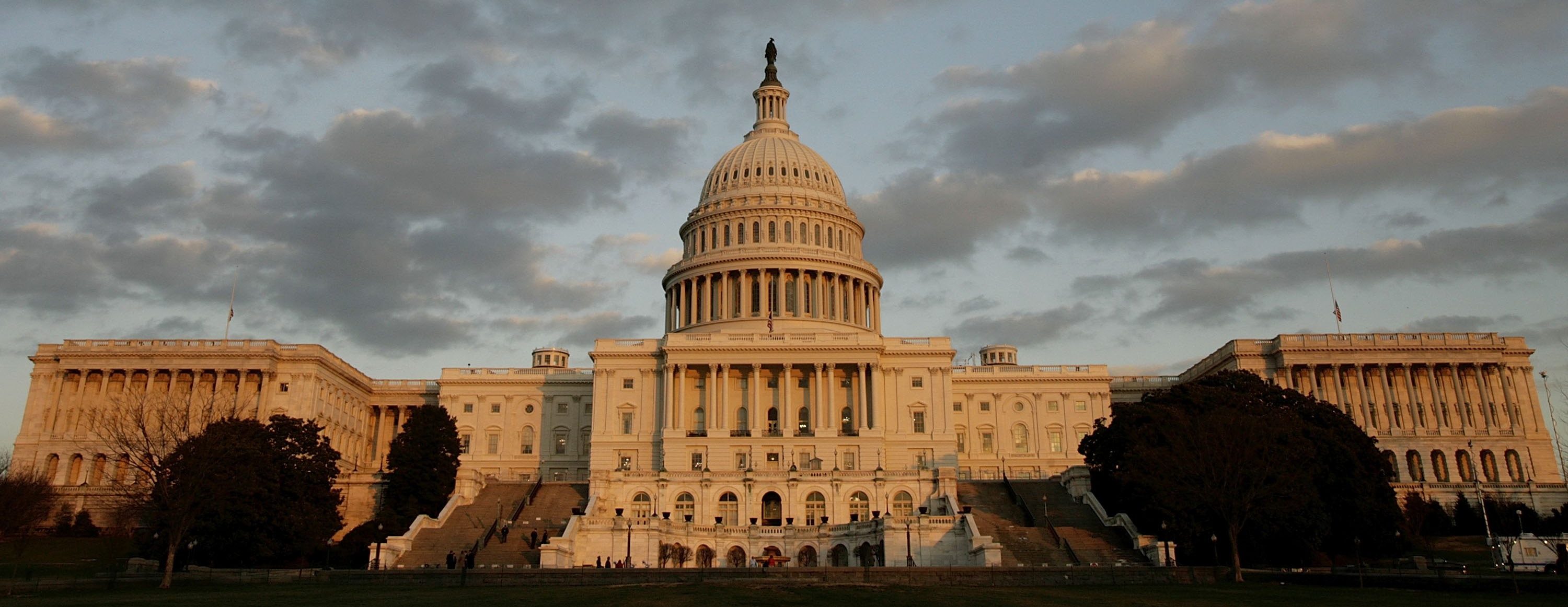Copyright CNBC

As the Senate held a rare Sunday session, the Republican leader said a potential deal was "coming together" on the government shutdown but there was no guarantee it would end an impasse now stretching to 40 days. There have been few signs of progress over the weekend that could be crucial in a funding fight that has disrupted flights nationwide, threatened food assistance for millions of Americans and left federal workers without pay. Top Republicans are working to present a legislative package that would reopen the government into January while also approving full-year funding for several parts of government. The necessary Democratic support for that effort was far from certain. "A deal is coming together," Senate Majority Leader John Thune, R-S.D., said as he walked in to open the chamber. He warned, however, that it was not a done deal. Senators insisted on time to read over the proposals and it could be hours before there was any action. "We'll see where the votes are," Thune said. Democratic leaders are pushing hard for an extension of subsidies for health plans offered under the Affordable Care Act marketplace. Republicans have rejected that offer, but signaled openness to an emerging proposal from a small group of moderate Democrats to end the shutdown in exchange for a later vote on the "Obamacare" subsidies that make coverage more affordable. For those enrolled in health exchanges under that law, premiums on average are expected to more than double next year if Congress allows the enhanced subsidies to lapse. Vermont Sen. Bernie Sanders, an independent who caucuses with Democrats, said the pledge to hold a vote on extending the subsidies would be a "wasteful gesture" unless "you have the commitment of the speaker of the House that he will support it and that the president of the United States will sign it." President Donald Trump has made clear he is unlikely to compromise any time soon. On Sunday, he pressed Republicans once more to abolish the Senate's filibuster rules that prevent the chamber from advancing on most legislation unless there is support from 60 senators. "Be the Smart Party," he said in a social media post. Sen. Jeanne Shaheen, D-N.H., and others have been discussing bills that would pay for parts of government — food aid, veterans programs and the legislative branch, among other things — and extend funding for everything else until December or January. The agreement would only come with the promise of a future health-care vote. It was unclear whether enough Democrats would support such a plan. Even with a deal, Trump appears unlikely to support an extension of the health benefits. House Speaker Mike Johnson, R-La., has said he would not commit to a health vote. Republican leaders in the Senate only need five additional votes to fund the government, and the group involved in the talks has ranged from 10 to 12 Democratic senators. Some Republicans have said they are open to extending the COVID-19-era tax credits as premiums could skyrocket for millions of people, but they want new limits on who can receive the subsidies. They argue that subsidies for the plans should be routed through individuals. "THE WORST HEALTHCARE FOR THE HIGHEST PRICE," Trump called the current system in a post Sunday.



